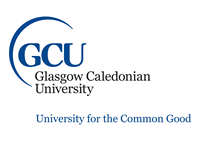Prof Sebastien Chastin, Dr G Morison
No more applications being accepted
Competition Funded PhD Project (Students Worldwide)
About the Project
Project reference number: SHLS19020
66% of the world now live in urban settings. Urbanisation is forecasted to keep growing putting ever increasing stress on resources and human well-being. According to the world health organisation urbanisation increases health inequalities and prevalence of non-communicable diseases. For example, mental health issues in urban settings are forecasted by WHO to be the leading cause of death by 2030. In most disadvantaged urban areas exposure to non-communicable disease and poor mental health predominantly clusters. This is compounded by climate change.
It is thought that urban green and blue infrastructure, that is urban water ways such as river and canals and their green banks, could have a salutogenic effect on urban population. This could be potent as it is forecasted that 50% of the global population will live within 2 kilometres of urban inland waterways. Urban water ways manage crucial water resources but are also linear recreation parks, traffic free commuting routes, flood and heat mitigation systems, tourist attractions and social places. Green and blue spaces are under-utilised assets which interact with health, economic, education, transport and housing systems. The issue is that there is a limited evidence base about how to leverage this potential to prevent non-communicable diseases (cardiovascular diseases, respiratory diseases, diabetes and mental health) and ensure health equity and resilience.
Aims
This PhD will focus on building an evidence-base about the health and health inequality effects of urban green and blue spaces. The project may explore the relationship between different types of urban green and blue infrastructure and health and health inequality; quantify the temporal and geographical spread of these effects, quantify the cost benefit of green and blue infrastructure; quantify the impact on inclusiveness and age friendliness of cities.
Specifications
The successful applicant will be a qualified and chartered Physiotherapist holding the minimum of a first degree (2:1 or above). Previous experience of quantitative research methodology is desirable.
Candidates are requested to submit a more detailed research proposal (of a maximum of 2000 words) on the project area as part of their application.
How to Apply
TThis project is available as a 3 years full-time PhD study programme with a start date of 1st October 2019
For information on How to apply and the online application form please go to
https://www.gcu.ac.uk/research/postgraduateresearchstudy/applicationprocess/
Applicants shortlisted for the PhD project will be contacted for an interview.
Research Strategy and Research Profile
Glasgow Caledonian University’s research is framed around the United Nations Sustainable Development Goals, We address the Goals via three societal challenge areas of Inclusive Societies, Healthy Lives and Sustainable Environments. For more. This project is part of the research activity of the Research Group – https://www.gcu.ac.uk/hls/research/researchgroups/ageingwell/
Funding Notes
A variety of scholarship packages including fully funded studentships and fees only scholarships are available to deserving UK/EU and international candidates. The fully funded studentships are worth £19,300 per year for 3 years, subject to satisfactory progress. They cover payment of tuition fees at the UK/EU rate and an annual stipend of £14,800.
Please see the GCU website for further details on the scholarship packages available.

 Continue with Facebook
Continue with Facebook

